Past Events
2017

A Very Jewish Christmas
This evening will feature a raucous singalong of our favorite Jewishly-inflected holiday songs, and special guest Jody Rosen, author of White Christmas: The Story of an American Song, who will discuss the unique phenomenon that is Jewish contributions to Christmas music. Afterwards we’ll celebrate with a free reception with Chinese food.

A Yiddish Liederabend — An Evening of Yiddish Song
YIVO presents an elegant as well as nostalgic program devoted to treasures of Yiddish song and the poetry that has inspired this musical expression in all its variety of style. Neil W. Levin will deliver the pre-concert lecture on the development of the Yiddish lieder tradition and its literary basis.
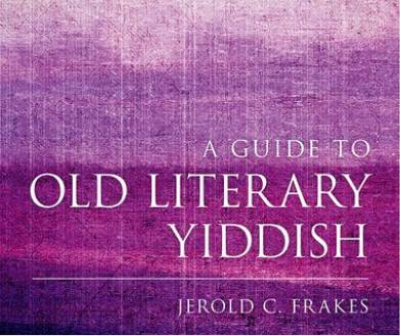
The Processing of Fish and Fowl in Elye Bokher’s ‘Ha-mavdil Song’
In his Old Yiddish poem, ‘Ha-mavdil Song,’ Elye Bokher uses fish and fowl as vehicles of his critique of an intellectual with whom he was engaging in a polemic.
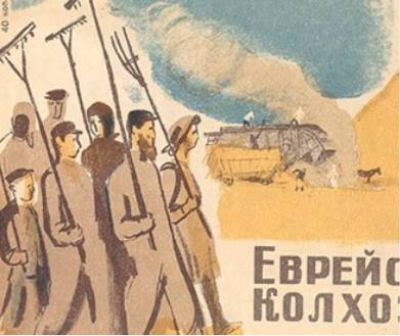
Back from the USSR: In the Footsteps of the Soviet Yiddish Propaganda Song "Hey Djankoye"
This lecture will trace the migration of a Yiddish propaganda song, which was originally written in the 1920s to encourage Soviet Jews to join the new colonies in Crimea and to become farmers, and which was revived in the 1960s by American folk singers.

Cantata Profana performs Gustav Mahler’s 'Das Lied von der Erde'
For this program YIVO joins forces with the young, “intrepid” (New Yorker) vocal and instrumental chamber ensemble Cantata Profana to present Gustav Mahler’s epic song symphony, Das Lied von der Erde (The Song of the Earth) in Arnold Schoenberg and Rainer Riehn’s chamber orchestra arrangement.
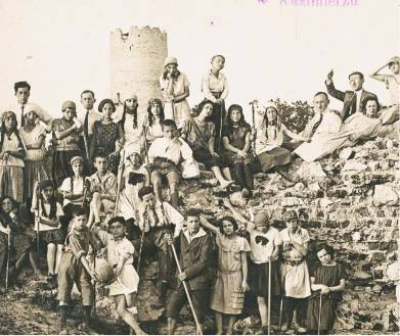
Polish Jews and Leisure Travel during the Interwar Period
How did Polish Jews had become tourists and what role Landkentenish Society (the Jewish Society for Knowledge of the Land) played in facilitating this process? The talk will draw on Yiddish and Polish travel guides, guidebooks, manuals and magazines for neophyte tourists published in the 1920s and 1930s.

Bad Rabbi and Other Strange but True Stories from the Yiddish Press
An underground history of downwardly mobile Jews, Bad Rabbi mines the Yiddish press to expose the seamy underbelly of pre-WWII New York and Warsaw, the two major centers of Yiddish culture in the late nineteenth and early twentieth centuries.
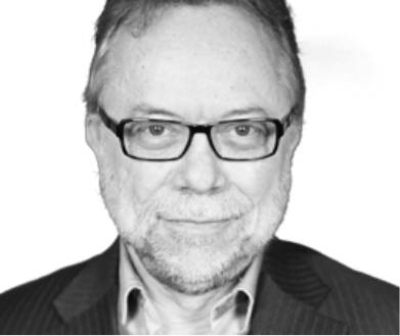
Sleuthing in Yiddish: The Yiddish Forward as a Source for Family History Information
In this presentation, Samuel Norich, president of the Forward Association, the not-for-profit publisher of the Forward and the Forverts, will provide an overview of the role the Yiddish Forward has played for American Jews for the past 120 years.

The Virtual Archive: Imagining I.N. Steinberg’s Jewish Refuge in the Kimberley
This presentation reviews an exciting collaborative project that constructs a virtual world to image and imagine I. N. Steinberg’s plans for a Jewish refugee settlement in the Kimberley region of Western Australia.
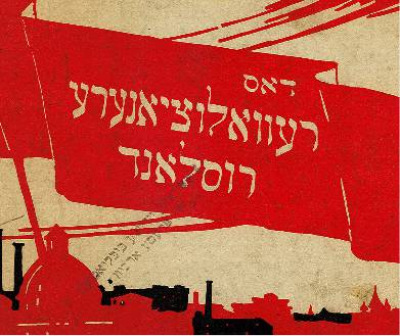
Jews In and After the 1917 Russian Revolution
YIVO presents a two-day conference on Jews in and after the 1917 Russian Revolution. The conference explores the context of, and immediate reaction to the Revolution, Jewish life in the Soviet Union, and the Revolution’s lasting impact today.

From the Cellar to the Top Floor
This lecture will examine the beginnings of the Hebrew Alphabet periodical press in the United States during the second half of the 19th century and its establishment there – a fascinating chapter in the social and cultural history of American Jewry.
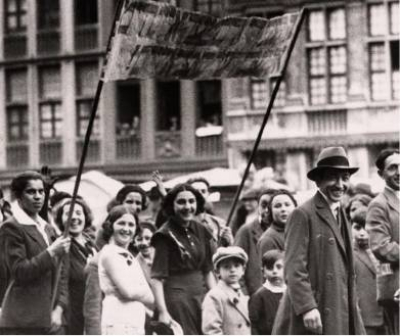
120th Anniversary of the Founding of the Jewish Labor Bund
YIVO celebrates the 120th anniversary of the founding of the Jewish Labor Bund, the socialist movement which has figured so prominently in the history of East European and World Jewry.

Mystic, Teacher, Troublemaker: Shimon Engel and the Challenges of Hasidic Yeshiva Education in Interwar Poland
This talk will explore Shimon Engel Horowic’s idea of Hasidic education as an alternative solution to the interwar crisis that befell the Hasidic communities.

The Book Smugglers
The Book Smugglers chronicles a little-known chapter from the darkest days of Jewish history: the story of the courageous Jews of the “Paper Brigade,” who risked their lives to rescue thousands of rare books and manuscripts—from the Nazis and the Soviets—by hiding them on their bodies, burying them in bunkers in the Vilna Ghetto, and smuggling them across borders.

Henech Kon: Beyond the Dybbuk
Henech Kon is best known today as the composer of the film score for The Dybbuk. He was, however, also a brilliant pianist and musicologist, and wrote arrangements for dozens of Yiddish songs and other scores. This lecture will present Kon’s life and work, and help to bring him the recognition he is due – and his music back on stage.

Introduction to Old Yiddish
Note: This course will now start on October 3 (previously September 5). A basic introduction to the Old Literary Language through a tour of some of its most important works, from poems dating back to the Cambridge Codex (1382), to Glikl of Hamil's memoirs of the 17th – 18th centuries.

Nusakh Vilne Memorial
Join us for our annual event commemorating the Jewish community of Vilna through poetry, music, and presentation. A reception will follow the presentations.

Singing for the Bride and Groom in Early Modern Ashkenaz
This lecture will reveal the nature of singing during Jewish weddings in Ashkenaz and will answer questions such as: who was allowed to sing what to whom and when? And which repertoire did female singers perform and how?

Chuck Fishman: Roots, Resilience and Renewal
From 1975 to 1983 Chuck Fishman traveled to Poland to photograph what was then a dwindling remnant of a once-vibrant Jewish community, a thousand years of history on the brink of extinction. Join us on September 17 for the opening reception of this exhibition, with a talk by the photographer, at the Derfner Judaica Museum.

A Traveler Undisguised: "Mendele Moykher Sforim” as a Modern Jewish Intellectual
2017 marks the 100th yortsayt of famed Yiddish author Sholem Yankev Abramovitsh—a writer better known by his pseudonym, Mendele Moykher Sforim, Mendele the Book Peddler.

Summer Yiddish Song Celebration
A concert in celebration of the rich breadth of music with Yiddish lyrics including Yiddish Theater Songs, Yiddish Folk Songs, and Yiddish Art Songs.

Chaim Beider: Poet, Editor, Essayist
This year, in memory of the Yiddish artists and writers who were murdered by the regime or suffered from repressions and cultural purges in the Soviet Union, the Congress for Jewish Culture joins with the YIVO Institute for Jewish Research and the Jewish Labor Committee to present Boris Sandler's new film, a one-on-one interview with his old mentor and friend, Chaim Beider (1920-2003).

The Muses of Bashevis Singer
Join us for a screening of director Asaf Galay’s documentary, The Muses of Bashevis Singer, about Yiddish writer Singer’s ‘harem’ of translators and their vital role in his creative work. Q&A to follow.

Annual Mordkhe Schaechter Memorial Program
YIVO and the League for Yiddish cordially invite you to the annual all-Yiddish program in Memory of Dr. Mordkhe and Charne Schaechter.
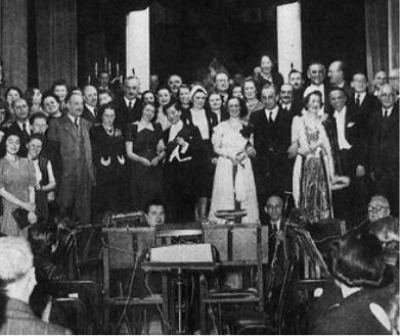
The Writers, Artists, Singers and Musicians of the National Hungarian Jewish Cultural Association (OMIKE), 1939-1944
In response to anti-Semitic laws passed in 1938 in Hungary, barring Jewish artists from practising their professions, Budapest’s Jewish community leaders organized an artistic group under the aegis of OMIKE Országos Magyar Izraelita Közművelődési Egyesület (Hungarian Jewish Education Association) to provide employment opportunities for Jewish actors, musicians, singers, composers, writers and artists.
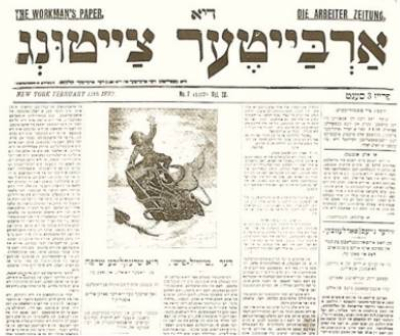
Abraham Cahan and the Inception of the Yiddish ‘Yellow Press’
The epithet 'gele prese' (yellow press) was often leveled at the socialist Yiddish Forverts by critics of its editor, Abraham Cahan, who accused him of imitating the methods of American newspapermen Joseph Pulitzer and William Randolph Hearst to the detriment of the Yiddish reading audience.

Jews and the Left Reconsidered
In the last decades of the 19th century, and the first decades of the 20th, Jews held highly visible positions in a number of different left-wing movements. Can this phenomenon be explained by referring to Jewish religious tenets? Can it be explained by the marginality of the Jewish population?

Jewish Songs and Dances: Music from the Archive of Lazare Saminsky
This concert explores the legacy of composer Lazare Saminsky (1882-1959), whose oeuvre represents a broad cross section of Jewish music ranging from sacred to secular. His songs set texts in Hebrew, Yiddish, Ladino, and more, and his music takes its inspiration from all around the Jewish world. This program is located in Temple Emanu-El, 5th Avenue at 65th Street, NYC.

The Myth of the Khazar Conversion and the Origin of the Ashkenazi Jews
For about 150 years, there has been a great deal of fascination, in certain limited circles, in the story of the conversion of the Khazars to Judaism and the possible link between them and Ashkenazi Jews.

2017 Lithuania and Poland Study Tour
YIVO hosted an enlightening journey to Lithuania and Poland in June of 2017.

Folkism and Yiddish Culture in Interwar Lithuania
In this talk Michael Casper discusses the emergence of Lithuanian Folkism, and its vision for Yiddish, in late 1910s and early 1920s.

The Yiddish Celluloid Closet and the Isle of Klezbos
Despite the taboo surrounding homosexuality, the topic was too intriguing to be left entirely out of the Yiddish picture. The Yiddish Celluloid Closet program presents Yiddish cinema as you’ve never seen it, plus Isle of Klezbos’ loving and live reinterpretations of movie music from the revelatory soundtracks.

Isaac Bashevis Singer – Jewish Storyteller and Iconoclast
Through a presentation of his early fiction and criticism published in Warsaw journals 1925-1933, this lecture will delineate the beginnings of Yitskhok Bashevis as a Yiddish storyteller.

The Rise and Fall of The King of Lampedusa in London’s Yiddish Theatre
This talk will look at the history of London’s Yiddish theatres before telling the story of its most successful production: The King of Lampedusa.
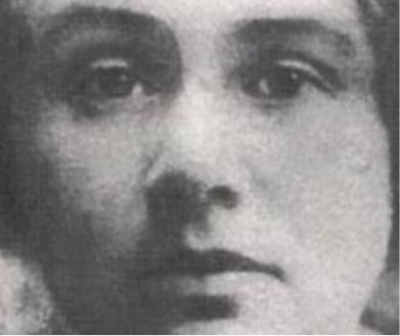
Drunk from the Bitter Truth: The Poems of Anna Margolin
This meeting of the 16th Street Book Club will discuss Drunk from the Bitter Truth: The Poems of Anna Margolin, translated from the Yiddish by Shirley Kumove.

Annie Gosfield Portrait Concert
This concert explores music of composer Annie Gosfield that takes its inspiration from Jewish culture, history, and the New York immigrant experience.

Crackpot or Visionary: Israel Zangwill, Isaac Steinberg, and the Jewish Territorialist Movement
In this talk, Dr. Laura Almagor will touch upon the colorful life stories of the central Territorialist leaders, as a gateway to exploring the history of the Territorialist movement and its many—nowadays seemingly fantastical—pursuits.
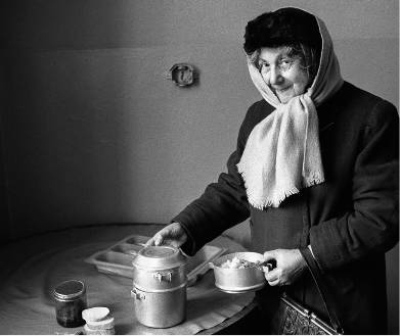
Roots, Resilience, Renewal
From 1975 to 1983 Chuck Fishman traveled to Poland to photograph what was then a dwindling remnant of a once-vibrant Jewish community, a thousand years of history on the brink of extinction. After a 30-year hiatus, he has returned to witness and document a stunning reversal of history—a Jewish cultural renaissance emerging and expanding into the mainstream of 21st century society. Located at Fordham School of Law, Lincoln Center Campus.
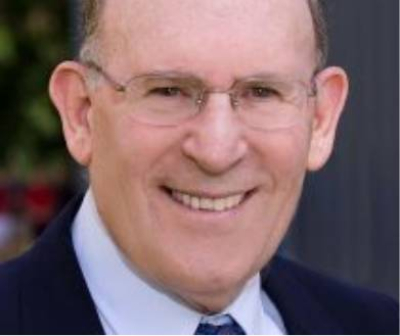
Jews, Partisans, and Ethnic Strife in Belarus during the Second World War
Of about a quarter of a million Soviet guerilla fighters or partisans that fought during the Second World War, perhaps 15,000 were Jews, and most fought in Belarus. After the war, Jewish partisans drew radically different conclusions from their experiences and went in very different directions.

Being a Jew in the Soviet Union: Findings from 'A Comprehensive History of the Jews in the Soviet Union'
Join us for this unique opportunity to hear from renowned scholars working on A Comprehensive History of the Jews in the Soviet Union as they share their findings with the public in this day-long conference.

Leading Scholars from Around the World Discuss: Growing Up Jewish
Before World War II, Jewish culture blossomed throughout Eastern Europe and in the growing Ashkenazi diaspora. Scholars Samuel Kassow, Miriam Udel, Naomi Seidman, and Barbara Kirshenblatt-Gimblett will discuss the lives of children in this Jewish world.
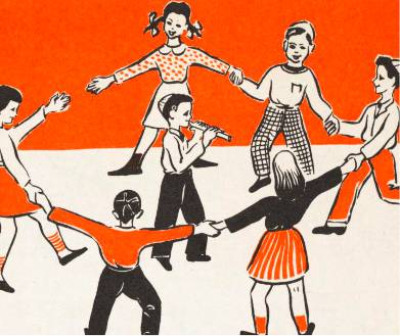
Children's Day
A morning of activity and cultural immersion for children of all ages; join us for sing-alongs, storytelling, and puppetry inspired by the lives of Jewish children before World War II.
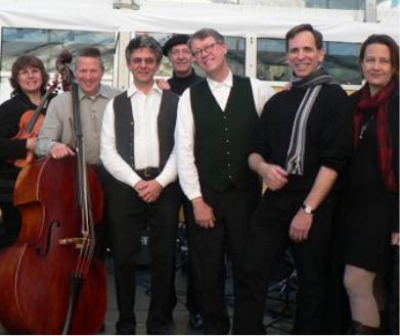
"When We Remembered Zion:" The New Budapest Orpheum Society Commemorates Yom HaShoah
Drawing from repertories of Jewish song from the Holocaust gathered from the cabarets, camps, ghettos, theaters, and films, the 2016 Grammy-nominated New Budapest Orpheum Society bears witness to those murdered, those who resisted, and those who must not be forgotten.
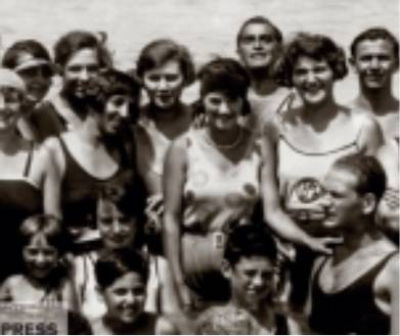
How They Lived: The Everyday Lives of Hungarian Jews 1867 – 1940, with Andras Koerner and Victor Karady
Supported by more than two hundred photographs, the second volume of András Koerner’s history, How They Lived – The Everyday Lives of Hungarian Jews, 1867-1940 examines in great detail how the Hungarian Jews lived their everyday lives—how they raised their children, spent their leisure time, practiced their religion, performed their charity work, and more.
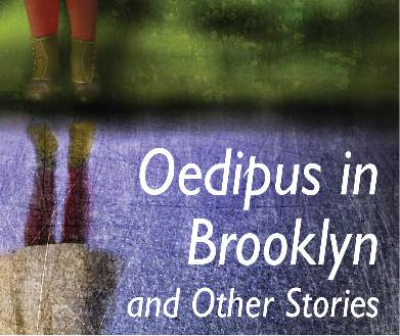
Oedipus in Brooklyn and Other Stories by Blume Lempel
Blume Lempel (1907-1999) was a courageous storyteller whose narrative imagination moved fluidly between past and present, Old World and New, dream and reality, modern-day New York and prewar Poland, girlhood dreams and old-age imaginings.

Political Thinkers of East European Jewry
In the 19th and 20th centuries, the world of East European Jewry was transformed by sweeping changes. Political thought has often been sparked by such change – and this was certainly true on the Jewish street. This course will focus on the ideas of Dubnow, Zhitlowsky, Pinsker, Ahad Ha’am, Syrkin, Borochov, Scherer, and Jabotinsky.

Money, Love, and Shame
Isidore Zolotarevski’s legendary 1910 melodrama will be presented at YIVO in a new English translation by writer/director Allen Lewis Rickman in a ‘rehearsed reading’ format, for one performance only. Not for the weak of heart, “Money, Love, and Shame!” is a wild ride with a group of dysfunctional Jewish immigrants. Though considered “shund,” or “trash” by critics, it was one of the most popular and most often produced plays on the Yiddish stage.

The History and Future of the Strashun Library
Matisyahu Strashun (1817-1885), a wealthy book collector, scholar, intellectual, and philanthropist from Vilna, amassed one of the biggest and most important private Jewish libraries in Eastern Europe during the 19th century.
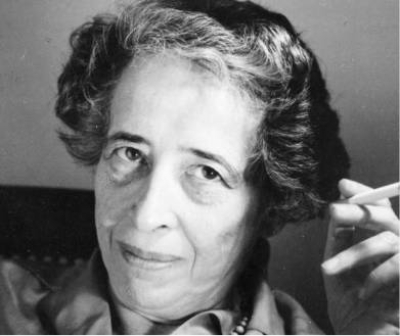
[WP2017] Hannah Arendt and the Jewish Question
This course traces the evolution of Hannah Arendt’s views on modern Jewish experience from her early work on the nineteenth-century Berlin Saloniste Rahel Varnhagen to her 1963 study of Adolf Eichmann, who in her eyes was emblematic of the “banality of evil.”

[WP2017] Reading Isaac Babel's Red Cavalry
This course will be an intensive, close reading of Isaac Babel’s masterpiece, Red Cavalry (1926). We will pay attention specifically to the literary elements of Babel’s unique style and explore how this style contributes to the development of his themes of war, the Revolution, the fate of the Jewish people, and the narrator’s own tragically conflicted inner drama of identity, conscience, and commitment.
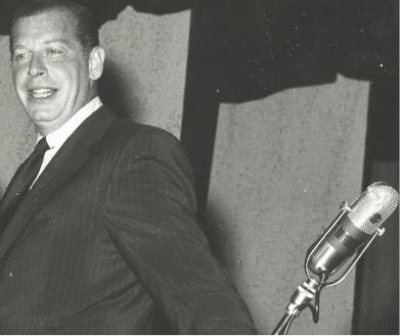
[WP2017] Jewish Humor: From Yiddish Folktales to Curb Your Enthusiasm
This course will survey the development of Jewish humor as a cultural phenomenon during the 19th and 20th centuries, focusing mainly on the history of American Jewish comedic output, but also delving into Jewish material from Eastern Europe, the USSR, and Israel.

[WP2017] The Tragedy of Europe’s Jerusalem: Lithuania’s Jews and the Holocaust
This course will examine several critical aspects of the history of Lithuania’s Jews during the twentieth century, examining the transformation of the region after the Great War; the Holocaust; and a survey of topics specific to the Holocaust in Lithuania with an emphasis on local history and case studies of selected locales and personal histories.

[WP2017] Yiddish Culture in Wartime, 1939-1945
This course will consider essays, diaries, songs and poetry written during the Holocaust. It will focus on writings from the ghettos of pre-war Poland and Lithuania and, in keeping with the purposes of the YIVO, on materials written originally in Yiddish.
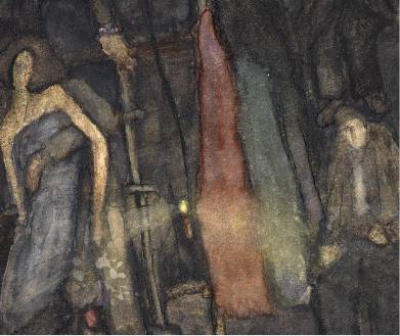
[WP2017] At the Edge of the Abyss: Jewish Intellectual Responses to Nazism, 1933-1940
This course will explore Jewish intellectual responses to Nazism from the rise of Hitler in 1933 to the first year of World War Two in 1939-1940.
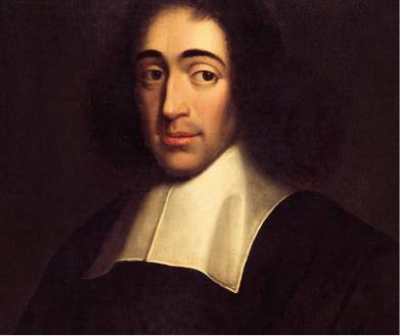
[WP2017] What Kind of Jew Was Spinoza?
What was the relation between Baruch Spinoza and Judaism and how did he transform the Jewish tradition? And perhaps most importantly, how did his transformation of Judaism bear on the development of modernity? This course will examine these questions through a close reading of Spinoza’s most important Jewish text, The Theologico-Political Treatise (1670).
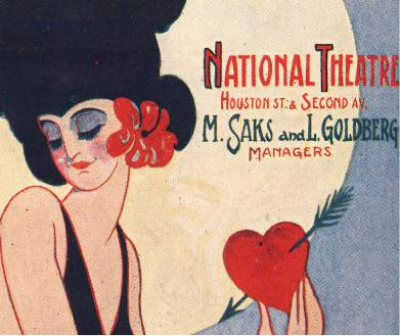
[WP2017] Modern Yiddish Theater
An abiding source of modern Yiddish creativity can be found in its encounters with the cultures it flourished alongside. This course explores border-crossings of genre and language as essential to the cultivation and vigor of any modern theatrical culture, particularly in the Yiddish theater.




